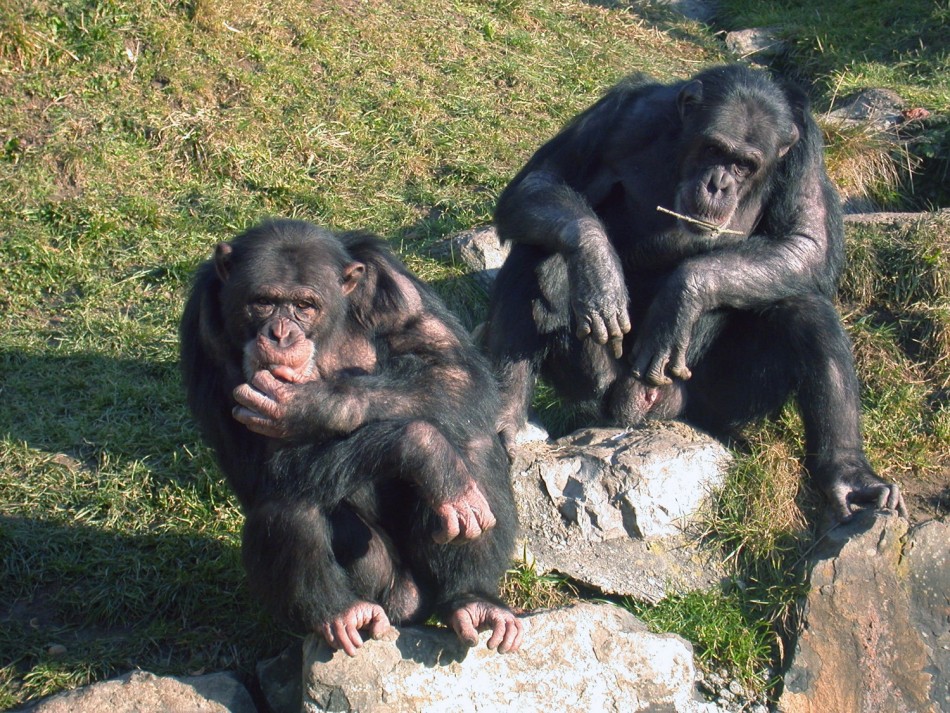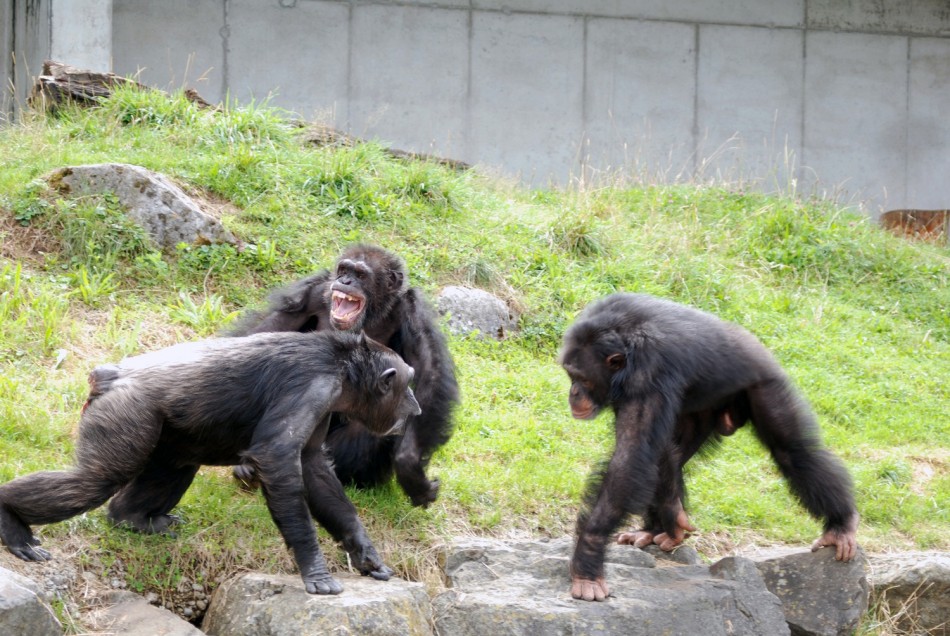Chimpanzees Also Have Police
Chimpanzees have police too, according to a new study. Anthropologists from the University of Zurich reveal that chimpanzees mediate conflicts between group members to keep the peace. Their unbiased intervention in a conflict - so-called "policing" - can be regarded as an early evolutionary form of moral behaviour.
Anthropologists discovered that the police chimpanzee does everything to ensure that there is peace and order in its group. This form of conflict management, which is called policing, helps the group stay together.
Researchers had analysed one group of chimpanzees at Walter Zoo in Gossau. The group comprised four different captive chimpanzee groups, and these chimpanzees had a wonderful and peaceful relationship until one day, when new female chimpanzees entered the group. As the stability of the group began to waver, researchers found that one chimpanzee bought back order by policing.
"We were lucky enough to be able to observe a group of chimpanzees into which new females had recently been introduced and in which the ranking of the males was also being redefined. The stability of the group began to waver. This also occurs in the wild," said Claudia Rudolf von Rohr from the University of Zurich.
According to the researchers, not every chimpanzee makes a suitable police chimpanzee. It is primarily high-ranking males or females or animals that are highly respected in the group that intervene in a conflict. Otherwise, the police chimpanzees are unable to end the conflict successfully. This shows chimpanzees also have authorities, just like humans.
"The interest in community concern that is highly developed in us humans and forms the basis for our moral behaviour is deeply rooted. It can also be observed in our closest relatives," said Rudolf von Rohr.


© Copyright IBTimes 2025. All rights reserved.





















